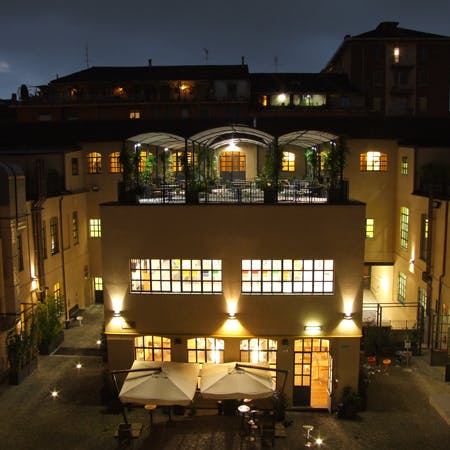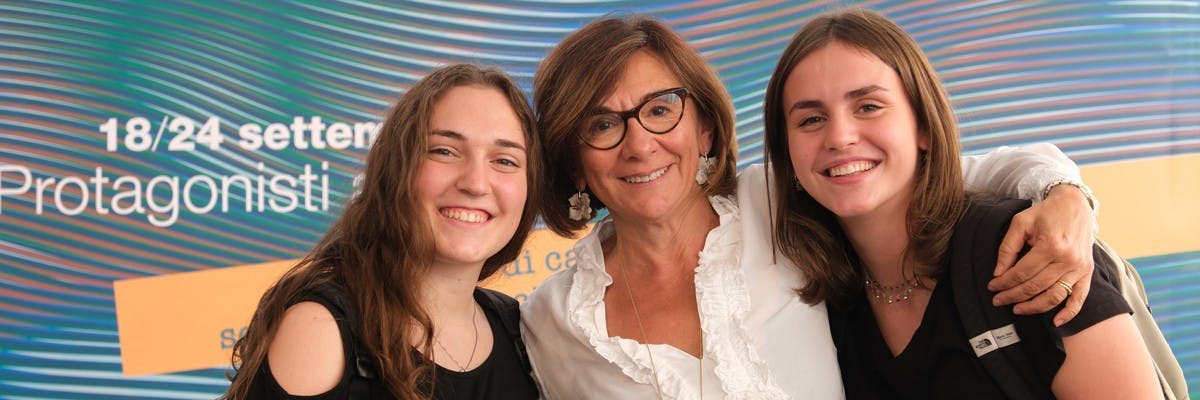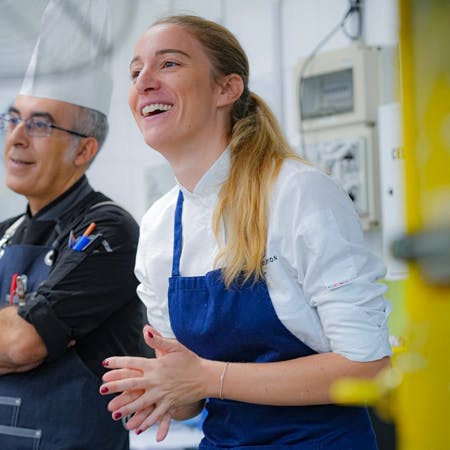belong to everyone
Work that generates people
From Piazza dei Mestieri to the Teddy experience: work as a place of personal and communal growth.

With this contribution, we continue to fill that space of Belong dedicated to welcoming authors’ voices, capable of offering external perspectives but deeply in tune with us. Different viewpoints, coming from various worlds (from social to cultural), that enter into dialogue with our vision of work, the person, and the community.
This piece is by Cristiana Poggio, vice-president and co-founder of Piazza dei Mestieri, a reality in Turin that for years has been helping young people in an educational path in which work becomes a school of life. At Piazza, indeed, one does not only teach skills, but one builds relationships, learns responsibility, discovers one’s own value in working together.


Cristiana leads us into a reflection on work as a space of human growth, connecting the experience of Piazza with Teddy’s corporate culture. Two stories which, though starting from different domains, share the same foundational idea: that work, when lived within a community, can generate much more than an economic result. It can generate people.
A contribution that speaks to us deeply and that enriches our journey, helping us find new words for what we believe in each day.
by Cristiana Poggio
Work is not only the place where economic value is produced. Increasingly often, especially for younger generations, it is the space in which one seeks meaning, a community, and an opportunity for personal growth. It is within this interweaving of profession and life that work can become a lever of human development, as well as social.

Piazza dei Mestieri: learning a trade, but also learning life
Entering Piazza dei Mestieri in Turin means breathing a simple and radical idea: that work is a school of life. Here young people don’t learn only how to cook, to serve at tables, to produce craft beer, or to work in graphic design. They learn to be together, to respect time and rules, to take on responsibility.
The experience of Piazza dei Mestieri was born precisely from this insight: work as a place of learning and self-building. At Piazza, young people are welcomed not only to learn a trade, but to be accompanied in discovering their own inclinations, talents; to face concrete responsibilities; to experience the beauty of sociality within a work context.
It is not simply professional training: it is a life gym, where work educates and shapes, where technical competence goes hand in hand with education in taste, creativity, coexisting with others.
“We do not train only professionals, but people, citizens,” the educators often say. In an era in which many young people risk getting lost, Piazza becomes a safe harbor.

Teddy: building something great together
This perspective finds a significant echo in Teddy’s history and culture. From its birth, Teddy has placed at the center a vision that goes beyond mere economic result, looking at work as a tool to “build something great together.” The business is not lived as a sum of individuals, but as a community of people who recognize themselves in a shared mission.
Teddy’s growth over time has been made possible by this idea: that each person, with their passion and responsibility, contributes to something larger than themselves.
Vittorio Tadei, in his speech at Teddy’s fiftieth anniversary - marking the generational transition - said, with not little emotion: “…Teddy is not a company like the others, because its engine is not financial or commercial strategies, but the passion of those who come to work every day with the desire to build something great that remains in history".
Today this vision is more relevant than ever. In an age marked by uncertainty and continuous change, people do not look only for economic security, but above all for workplaces where they can feel recognized, valued, and placed in conditions to always learn. They want to leave a mark in history, they want spaces where they can express creativity, grow professionally without giving up their human dimension. In this sense, work becomes an opportunity for meeting: with oneself, with others, with a meaning that goes beyond the immediate.


The parallel between Piazza dei Mestieri and Teddy shows us how a company, when lived as a community, can truly become a school of life. It is the possibility of making mistakes and trying again, of learning from those with more experience, of discovering the joy of doing things together. It is the certainty that one’s contribution, even a small one, has real and recognized value.
To tell about work as human growth means then to overturn a reductive vision, one that limits it to just contract or performance. It means to rediscover its educational reach: a place where character is formed, where responsibility develops, where one learns to share successes and struggles. It is in this sense that work becomes generative: of skills, of bonds, of future.
Today, when we talk about the “attractiveness” of companies, we are actually talking about this: about the capacity to build contexts that know how to guard and nurture the growth of people. Teddy has done it and continues to do it, showing that a company can be a living community, where every person is enabled to become greater than what they imagined. The young people of Piazza dei Mestieri often say: “Making this dish, doing this fold, I discovered that I matter".

A challenge for all companies
The dialogue between Piazza and Teddy shows that every company can become, if it wills, a place of learning and generation of meaning.
However, it is necessary to deepen the conditions that make work truly educational for today’s youth. Nothing can be taken for granted: what was valid for my generation does not automatically hold for today. Just think, for example, of phenomena like the Great Resignation or the difficulty many sectors face in finding personnel. In the end, this is the question many people ask today: “Is it worthwhile to work here?”
The answer no longer passes only through the paycheck, but through a company’s ability to become a space of growth and of future.
First of all it is necessary that the encounter with a job happens in a “human” place, in a socially identifiable and active reality; in today’s great desert one can’t do without this concern.
But above all it is necessary that there are adults, mentors who can challenge them and accompany them to discover their worth, to recognize it, and be available to develop it. As Vittorio Tadei was, and as those who have always accompanied him.